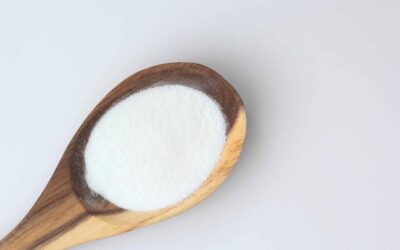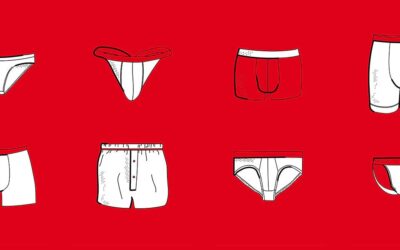
Male fertility is having a bit of a crisis at the moment, with sperm counts down by 60% since 1970 and still going down. Male infertility is 50% of the problem when couples present to their GP with infertility yet, so little is done to help men. It’s often straight to IVF and barely a question is asked about diet and lifestyle or any thoughts of advanced testing for the man. Even worse is when a man asks what he can do, most of the time the response is “we’ll just go with ICSI”.
It’s an entirely different situation with breeding animals; there is a mass of research on bull, ram, and boar sperm, and why might this be? Because a vial of great-quality animal sperm is worth a lot of money! So, vets and farmers look at the research and add the right nutrients to their animal feed. There is a bull in India that is prized for its fertility; it has the best food, added vitamins, music, and even massage!
Research has come on a bit too, and luckily, it’s not rocket science. Sperm are delicate, they are damaged easily. That’s why so few of them ever make it to the egg, which is also pretty fussy about who it lets in. Younger eggs do a lot of sperm repair, but older eggs are too busy looking after themselves with less capacity to repair old or damaged sperm.
Sperm are strongly affected by junk food and what is now known as ultra-processed food (full of chemicals and additives) due to the oxidative stress and inflammation it creates within the body. Of course, the odd burger and chips or takeaway pizza are fine but eat these foods regularly at your peril! Studies have now shown that if teenage boys consume these foods regularly they risk permanently damaging their sperm-producing cells.
Changing your diet to one full of fresh, un-processed, colorful foods will help your sperm and your general health. Think of it as a project – twelve weeks is usually all it takes to make significant changes to sperm and if you stick with it it’ll have long-term benefits to your overall health too.
Fertility Foods For Men
High-zinc foods are vital for testosterone production, libido, and sperm count. Walnuts, hazelnuts, and almonds are especially good for sperm whilst vitamins C and E are essential for protecting sperm from damage as they swim along the fallopian tube to meet the egg. Sunflower and pumpkin seeds contain plant sterols and zinc whilst tomatoes, especially concentrated tomato paste, puree, and sundried tomatoes are high in lycopene, important for the prostate gland and sperm health. Brazil nuts also contain the amino acid L. Arginine, and lean, free-range meat is high in L. Carnitine, both important for sperm production and sperm quality.
Caffeine and alcohol
The research is a bit mixed about these two, and it’s very hard to give everything up in life when you’re trying to conceive. However, high intakes of caffeine may impact both male and female fertility so try and keep your teas and coffees down to the minimum, one or two cups a day is fine.
Alcohol intake should be low, a glass or two on a Friday and Saturday, for example, and absolutely no binge drinking!
Antioxidants and fertility
Antioxidants are compounds in certain foods that help to protect all our cells from damage by oxidative stress, and that goes for sperm too. Vitamins E and C, and trace minerals zinc and selenium are essential nutrients for fertility.
- Vitamin E is found in dark leafy greens, nuts and seeds, avocados, and olive oil.
- Vitamin C is found in strawberries, citrus fruits, peppers, kiwi fruit, and leafy greens.
- Selenium is found in Brazil nuts, chicken, turkey, lentils, and garlic.
- Zinc is found in all meats, shellfish, nuts and seeds, and pulses
Supplements for male fertility
A diet rich in vitamins, minerals, and antioxidants is considered to be the best for male fertility. If you find it hard to always eat healthily, or you have any dietary restrictions or are vegan or vegetarian, it’s a good idea to take an all-around male fertility pre-conception multivitamin containing zinc, vitamin C&E, and selenium. If oily fish is not part of your diet, consider an omega three supplement. I also recommend men take a vitamin D supplement. FERTILITY BUNDLE FOR HIM
Don’t overdo vitamins, too many antioxidant supplements can have the opposite effect; more is not necessarily best. Diet is key here.

Lifestyle factors
- Wear looser, natural-fabric underwear. Testicles need cool air and good blood flow. You could even consider just buying a larger size than you may need. If you have a varicocele (which raises scrotal temperature), use Snowballs which are specially designed to cool the testicles
- Do not take hot baths or use a sauna or steam room.
- Use a standing desk and move as much as you can when you are working from home.
- Do not carry your mobile phone in your trouser pocket or use a laptop on your lap (even on a cushion) because of heat and radiation.
- Do exercise; this helps testosterone metabolism and improves the activity of the sperm-producing cells. Be careful of serious cycling though, ramming your testicles into a hard saddle for long periods is not great for them.
- Avoid parabens in toiletries like shampoo, shower gel, deodorant, and triclosan in toothpaste and BPA in plastics. Never heat food or drink or put hot food or drinks into plastic.
- Avoid chemical lubricants. Use sperm-friendly brands.
- If you have high DNA fragmentation, try to ejaculate every other day.
- If you are trying to conceive naturally then mornings are the best time for sex as your testosterone levels are at their highest. Having regular sex throughout the menstrual cycle is generally a better idea than focusing everything on ovulation, as this can become very stressful.
- Do not smoke or use recreational drugs.
- Never use anabolic steroids; over time they will wreck your fertility.
- Avoid protein powders as traces of steroids can be found in them.
- Try not to use hair growth medications, certainly taking them orally has been shown to alter testosterone levels, but even topical application may impact fertility as well.
- Be aware that certain medications can have quite a detrimental effect on sperm such as anti-depressants, statins, benzodiazepines, cortico-steroids, hair growth medication, creatine, and prescription antihistamines. But of course, if you have to use these, do not take yourself off them without seeing your GP.
All of this is generally common sense advice. It may be that you need something a little more tailored and sometimes specific advice and support are what some men need. If you want something a little more personalized then drop Melanie Brown a line.
And if you feel you need more detailed medical support consider seeing a male fertility specialist/Urologist.







0 Comments